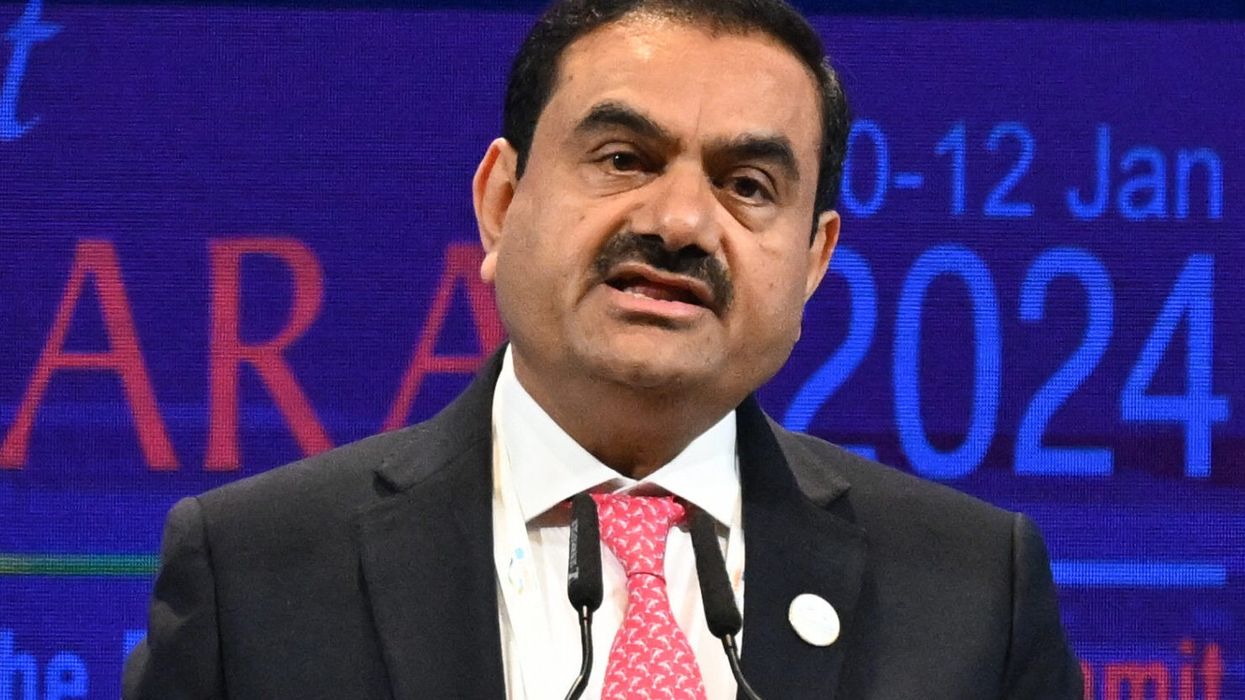IN 2018, Gautam Adani, one of Asia's richest men with a fortune exceeding £78.74 billion, gathered his sons and nephews at his home in Ahmedabad. He posed a significant question: Did they want to divide the Adani Group’s businesses among themselves and go their separate ways? The patriarch gave them three months to decide. This discussion initiated what could be one of the world's largest wealth transfers, with Adani planning to retire at 70, leading to a leadership transition in the early 2030s.
Adani, in a rare interview with Bloomberg Television's Inside Adani, shared his retirement and succession plans but did not address ongoing controversies surrounding his conglomerate, including a US Department of Justice bribery investigation. His heirs, however, discussed the investigations and their future vision for the group.
Gautam Adani has revealed that his succession plan involves transferring control to his sons Karan and Jeet Adani, along with their cousins Pranav and Sagar Adani, who will become equal beneficiaries of the family trust.
This succession plan is structured to ensure the sustainable growth of the Adani Group, which has diversified interests across various sectors, including energy, infrastructure, and logistics. A confidential agreement will govern the transition of stakes in the group’s companies to the heirs, ensuring a smooth and gradual handover.
Karan Adani, Gautam Adani’s elder son, currently serves as the managing director of Adani Ports, while his younger son, Jeet Adani, holds the position of director of Adani Airports. Their cousins, Pranav and Sagar Adani, also play significant roles within the conglomerate, with Pranav as the director of Adani Enterprises and Sagar as the executive director of Adani Green Energy. According to Bloomberg, Pranav and Karan are the leading candidates to eventually assume the role of chairman.
The Adani Group faced significant challenges last year when New York-based Hindenburg Research accused the conglomerate of using offshore companies to inflate revenue and manipulate stock prices, allegations the group denied. The report led to a temporary £120.47bn loss in the group’s value, which was later recovered before India’s elections this year.
Amid these legal and reputational risks, the leadership transition at Adani Group becomes even more critical. The conglomerate, with a market capitalisation of £167.72bn across 10 listed units, controls significant infrastructure in India, including coal imports, solar farms, cement production, ports, and airports.
Following the Hindenburg report, the group reduced debt, cut share pledges, and secured new investors. However, a weaker-than-expected election win for Indian prime minister Narendra Modi, who is perceived to be close to Gautam Adani, led to another £35.43bn loss in the group’s value.
Gautam Adani emphasised the importance of a well-structured succession plan for the longevity and stability of the business. “Succession is very, very important for business sustainability. I left the choice to the second generation as the transition must be organic, gradual, and very systematic,” he said.
The succession plan also highlights the commitment to maintaining a collaborative approach to decision-making within the Adani family, even during crises or major strategic decisions. The Adani children, in separate interviews with Bloomberg, reiterated the importance of joint decision-making in ensuring the continued success of the conglomerate.
This announcement comes at a time when Adani Enterprises, the flagship company of the group, reported a significant increase in its first-quarter profit, which more than doubled. The surge in profit is attributed to substantial investments in renewable energy, a sector that the Adani Group has been actively expanding into.
The Adani Group, which started with a single commodity-trading business in 1988, has grown into a diversified conglomerate with significant interests in energy, infrastructure, logistics, and other sectors. Gautam Adani, who began his journey as a diamond sorter in Mumbai, has built one of India’s largest business empires, which now spans multiple industries.
As Gautam Adani prepares to step back, the focus will shift to how the new generation will handle the challenges and opportunities that lie ahead. The carefully crafted succession plan is seen as a strategic move to ensure a seamless transfer of leadership, allowing the Adani Group to continue its growth trajectory while preserving the family’s legacy.
With the transition expected to be gradual, the next decade will be crucial for the Adani heirs as they take on more significant roles within the group. The success of this plan will likely be pivotal in determining the future direction of the Adani Group as it navigates the complexities of the global business landscape.












